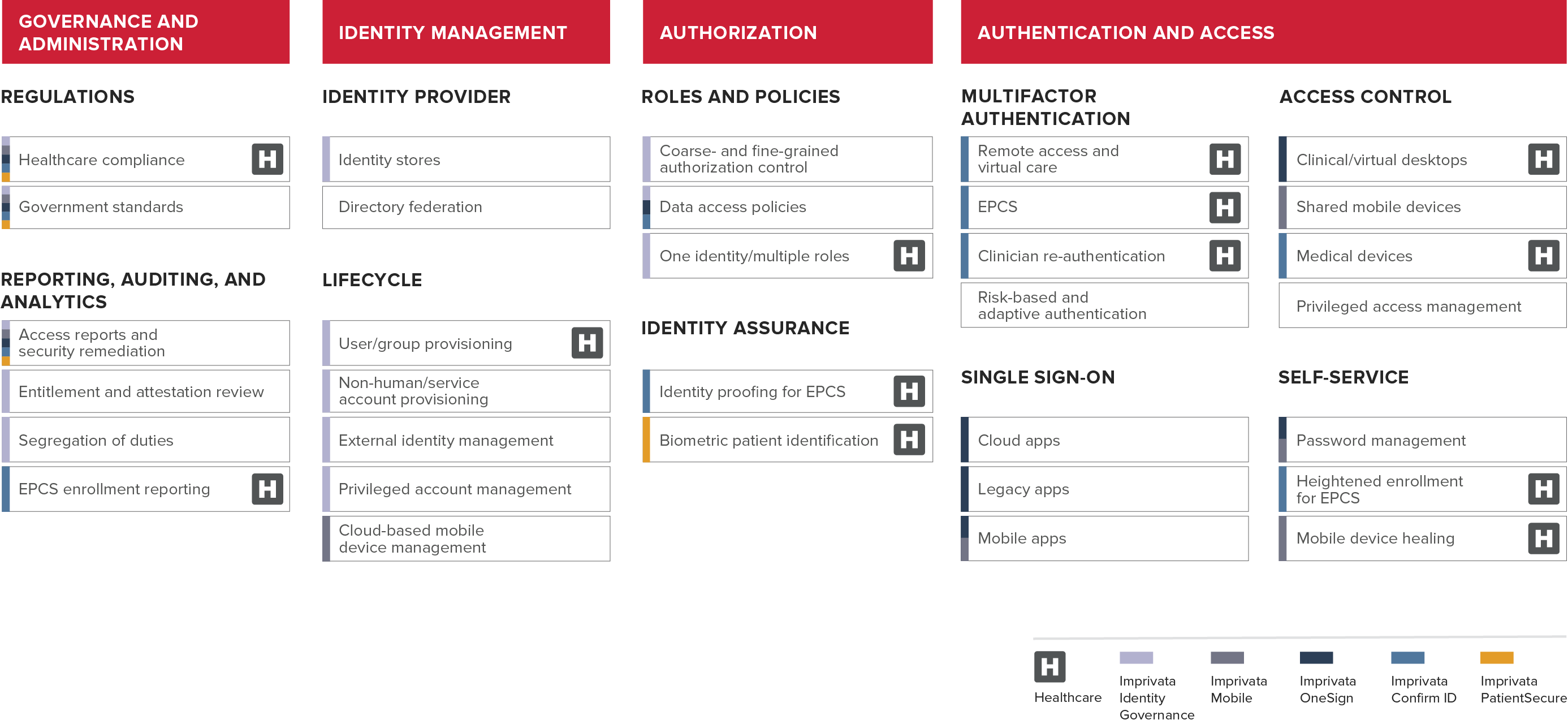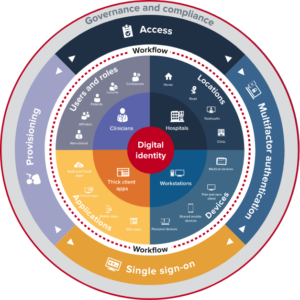Identity Review | Global Tech Think Tank
Keep up with the digital identity landscape.
With the increased digitization of the world over the past decade, the healthcare industry has found itself evolving at a faster pace than ever before. New-age technological developments, such as telehealth offerings, electronic health records, and even wearable technology for health monitoring have all redefined the ways in which healthcare can be delivered without diminishing the quality of care. COVID-19 has also accelerated society’s current need for non-traditional routes of heatlhcare, as the high risk of disease transmission made it clear that traditional visits to the doctor’s office may not be the best solution for delivering healthcare.
Turning to digitized solutions for the delivery of healthcare presents its own set of challenges, however. With pre-existing laws and regulations in place regarding patient privacy as well as a lack of trust among many people regarding the security of digital data-storage systems, striking a balance between allowing for technological innovation and policy change within the healthcare industry while maintaining patient privacy has proven to be a difficult task—but not an impossible one.
Last month, Imprivata, a digital identity company in the healthcare industry, announced the Imprivata Digital Identity Framework for Healthcare. This framework serves as a plan for healthcare organizations to implement effective systems to manage digital identities across the entire healthcare enterprise, and aims to address key governance and administration, identity management, authorization, and access and authentication functions for IT leaders in healthcare. Overall, the framework enables identity management across the healthcare delivery organization’s (HDO) complex ecosystem using a unified security- and efficiency-focused strategy.
The Imprivata Digital Identity Framework for Healthcare is structured with respect to key categories required for a robust digital identity strategy that meets the unique demands of HDOs. Through customer feedback and industry leading schemes from Microsoft, Gartner, Forrester and more, the framework was designed around the following categories:
These categories support the planning process for healthcare information technology, beginning with a comprehensive ecosystem in mind.

As Jaimin Patel, the Product Lead for Identity Governance at Imprivata, explained, “when you think about healthcare workflows or where healthcare was a few years back, it was pretty constrained within the hospital. Many clinical users were working within the hospital, on thick client workstations with thick client applications. Patients would come into the hospital or go to the physician’s office, but everything would happen in those four walls. But in the last five, six, seven, eight years—there has been a lot of increase in how and where the care gets delivered.”
Nowadays, clinicians do not only work in hospitals. On top of the care they deliver in this one physical space, they may also support their patients remotely (such as through telehealth technologies) or through alternate spaces including clinics and affiliate associations. The devices used to manage and collect patient data have also evolved and expanded immensely within the last decade, meaning that softwares and applications are adapting to more cloud and SaaS-based hosting.
Pre-existing identity frameworks from large-scale, cross-industry vendors such as Microsoft and Oracle proved insufficient to adequately address healthcare workflows, especially given the amount of highly sensitive information stored in healthcare databases and the complex and widely varied amount of regulation surrounding it. Therefore, to keep up with the pace of newly developed technologies, Imprivata created a more streamlined digital identity framework that customers can use to fit the digital identity strategy that they want to achieve.
“Our new framework shows our customers where existing IAM tools fit into a broader, more holistic approach focused on digital identities which are tantamount to efficient clinical workflows as well as rapid response to support remote workers, virtual care – and whatever unknowns the future may hold,” said Gus Malezis, President and CEO of Imprivata.
With a large number of people working remotely without access to a robust and secure home server or network, the likelihood of a security data breach increased greatly when COVID-19 hit. Furthermore, with the increased demand for healthcare professionals to treat COVID-19 patients, determining the best care-routing solutions became more than just a question of data security or reducing risk of infection.
“COVID-19 made it clear that in-person, face-to-face patient care may not always be possible. So, how do you get around it? That’s what drove the changes in telehealth regulations,” explained Patel. “The law that regulated how much of remote patient care can be provided is now becoming more standardized and more relaxed. So, more insurance providers are also saying, ‘Yep, you can go visit your doctor. You don’t have to go visit them in person, you can do it on a virtual telehealth application.’”
It is clear that the delivery of healthcare will only continue to expand into the digital space. With new services and technological advancements for patient care, digital identity governance will grow in importance in a parallel fashion.
“I can see more organizations adapting and adopting to the new digital transformation. Now, identity is more of a control play. There’s a lot more interest in how to manage and control the identity aspect, who can do what, and what is being done with that access. The first ten years of my 18 year career were more about trying to make a case to a CIO saying, ‘Why do you need identity management?’ The last six or eight years have been more about them already knowing why they need it, but now figuring out how they are going to make it a top ten priority.”
As new technologies develop and COVID-19 continues to change the way we live, there is no doubt that digital identity will prove to be indispensable in the healthcare industry. Through the development of new technology and frameworks, not only will the delivery of healthcare in the COVID-19 era be honed and made more secure—the entire future of healthcare will be redefined as well. Whether it is through increased telehealth offerings, new patient privacy regulations, or simply a changed social norm of how healthcare should be received, implementing digital identity frameworks in the industry is the only way to progress towards the future.
